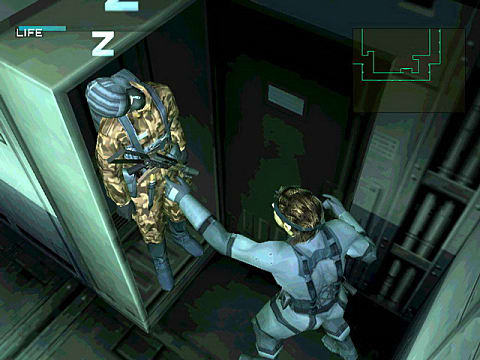I feel that if the industry keeps going as it is, irreparable damage to the medium we love is sure to follow. I’m not talking strictly on the side of idealism, that lying is bad and we the people deserve to be treated better or whatever. But the financial interests of the industry may end up being at stake as well.
If people get shafted and lied to enough times, common sense dictates that they will eventually stop paying money to play games. There is a little thing called piracy and free is the best value there is, no matter what kind of product we are talking about.
Why don’t more studios put out game demos?
Well for one thing, development timelines have become smaller as games have become more advanced. Companies want to put out more games, quicker so that they can maximize their profits. As a result, there isn’t enough flexibility for a development team to stop production just to create something completely separate from the final product. This isn’t impossible to understand, but there are some undeniably positive effects that a good demo can have on an upcoming game that a vertical slice or social media poetry simply can’t provide.
The Right Way to do a Demo
Do you want an example? Look no further than Konami’s P.T.
Though it can be argued that P.T. has become somewhat of a detriment to Konami, albeit for reasons they inflicted upon themselves (namely, canceling Silent Hills), P.T.’s singular impact on the gaming community is undeniable and was highly effective at getting people to talk about the game it was demoing. And if you’re a publisher trying to hype up a brand new game, isn’t that what you want?
The Demo Drought
To highlight how bare bones the demo scene is, here are the 5 most recent demos on some of the major platforms’ online store pages:
Xbox One
NBA Live 16 Pro Am FIFA 16 Forza Motorsport 6 Dying Light PES 2016
PlayStation 4
Disgaea 5: Alliance of Vengeance NBA Live 16 Pro Am FIFA 16 Destiny PES 2016
Steam
Over the Hills and Far Away The Universim Impulse Revolution Heroes of a Broken Land Shift Happens
Xbox 360:
FIFA 16 PES 2016 ScreamRide Rabbids Invasion: The Interactive TV Show LEGO Batman 3: Beyond Gotham
PlayStation 3
FIFA 16 PES 2016 Monster Jam: Battlegrounds NASCAR ‘15 Sparkle Unleashed
As you can see, there isn’t a whole lot that is notable and a lot of the stores have the same games. While there are a few highlights like Disgaea 5 and Forza Motorsport 6, a lot of the other big games, like Destiny and Dying Light only got demos AFTER they released, which doesn’t help the people who already bought the game at all.
The Wrong Way to do a Demo
On the flip side, there are some companies who do create demos and then charge a fee for them. Once again, we turn to Konami for an example.
Metal Gear Solid V: Ground Zeroes would have unquestionably been considered one of the greatest game demos of all time had Konami not slapped a $40 price tag on it on release. On Metacritic, it scored a very ordinary 75 overall, but that was not a reflection of the quality of the game itself, but rather that the amount of content did not justify the price.
Now, a year later, with The Phantom Pain now on store shelves, Ground Zeroes is pretty much worthless (money wise). If you’ve had PS Plus or Xbox Live in the past few months, you probably have a free copy of Ground Zeroes (or two, if you own both platforms) as it was one of the free monthly giveaways. Ground Zeroes was also packaged in as a freebie if you pre-ordered The Phantom Pain on Steam, so it became quite clear that it wasn’t much more than a cash grab.
Don’t get me wrong, I’m not blasting or picking on Konami (though it may seem like it), they certainly aren’t the first to do this, and to be fair, it works because people bought it.
What is the solution?
All isn’t and shouldn’t be lost on the demo front, and there are things that publishers and developers can do to make them prominent pieces of advertising.
You know those stage demos at E3, Gamescom and the like? GIVE THEM TO US. Seriously, if you want people to lose their shit (even more than they already do) over a new game at a major conference, get a demo in their hands as quickly as possible. It shows confidence in the product and inspires people to want to play and eventually invest. And more importantly, it will get them talking.
Sometimes demos don’t even have to have any of the final game’s content. They can be stand alone games or levels on their own, like P.T. or The Stanley Parable. In the case of The Stanley Parable, the final game is a commentary on the expectations of what a game is, so the demo took that same commentary logic and applied it to demos, creating a wholly different and self-contained experience that can’t be found in the main game.
Game industry, please give us back our demos. There is so much potential, and we’re tired of hearing the phrase “unlike anything you’ve ever seen before”.
